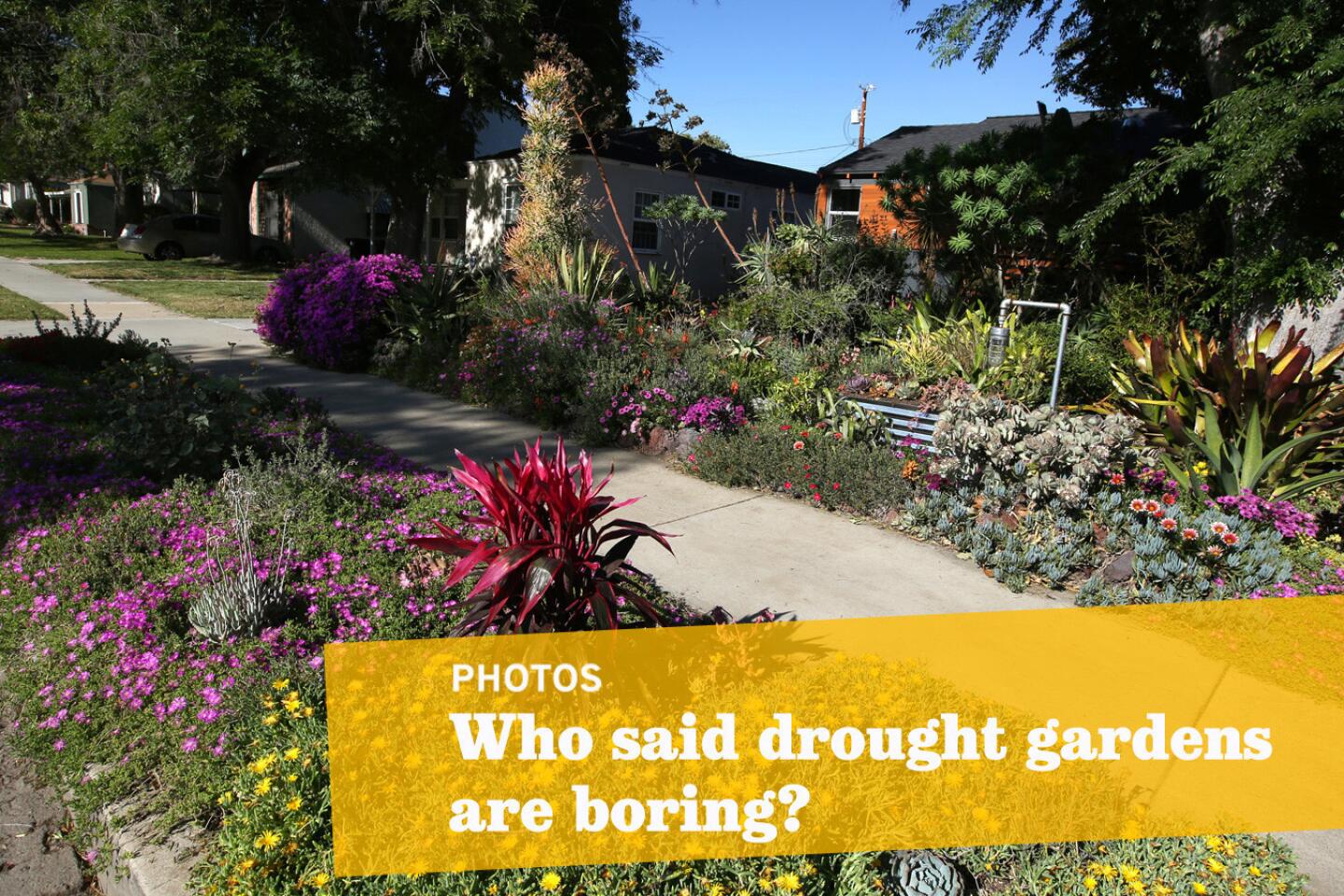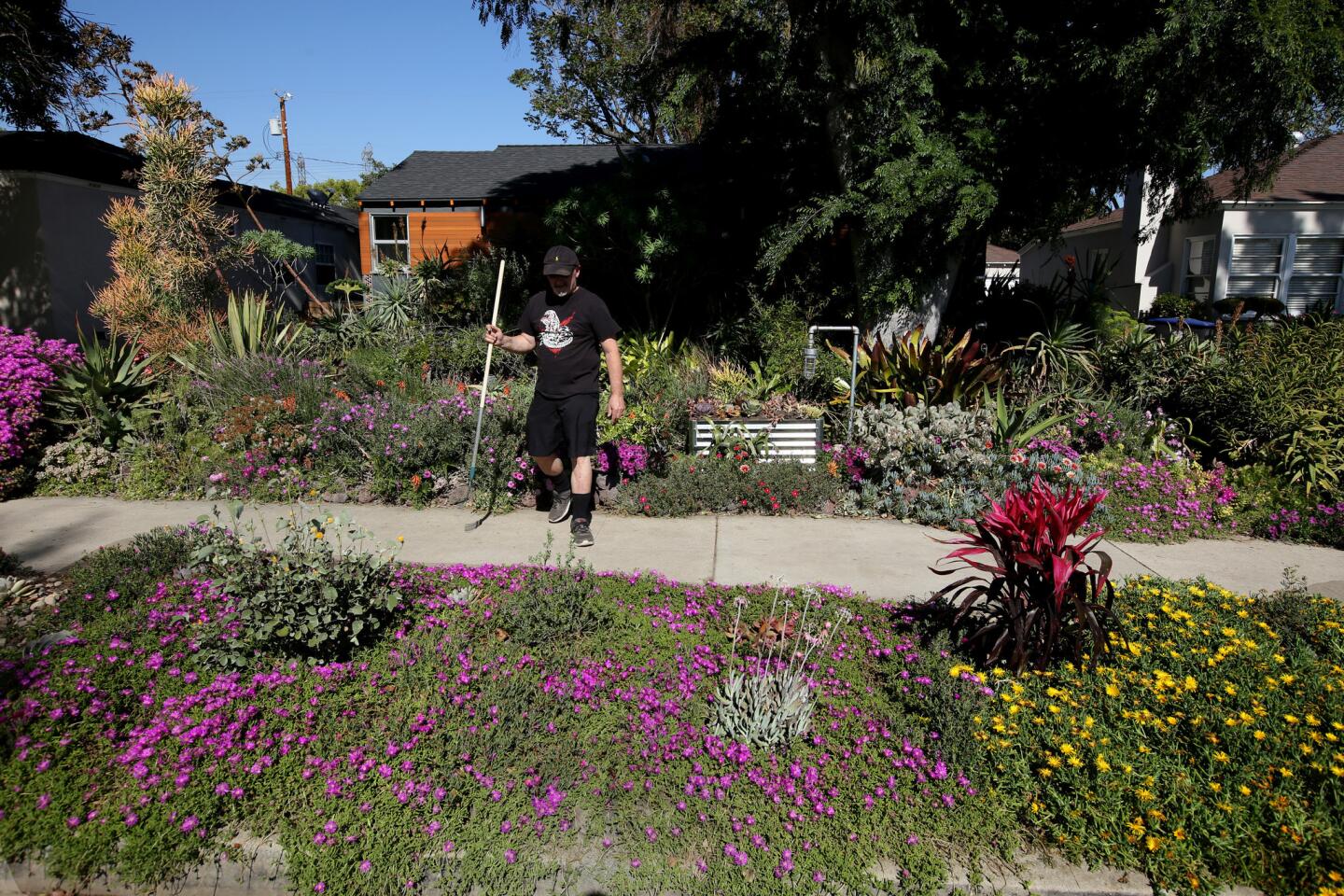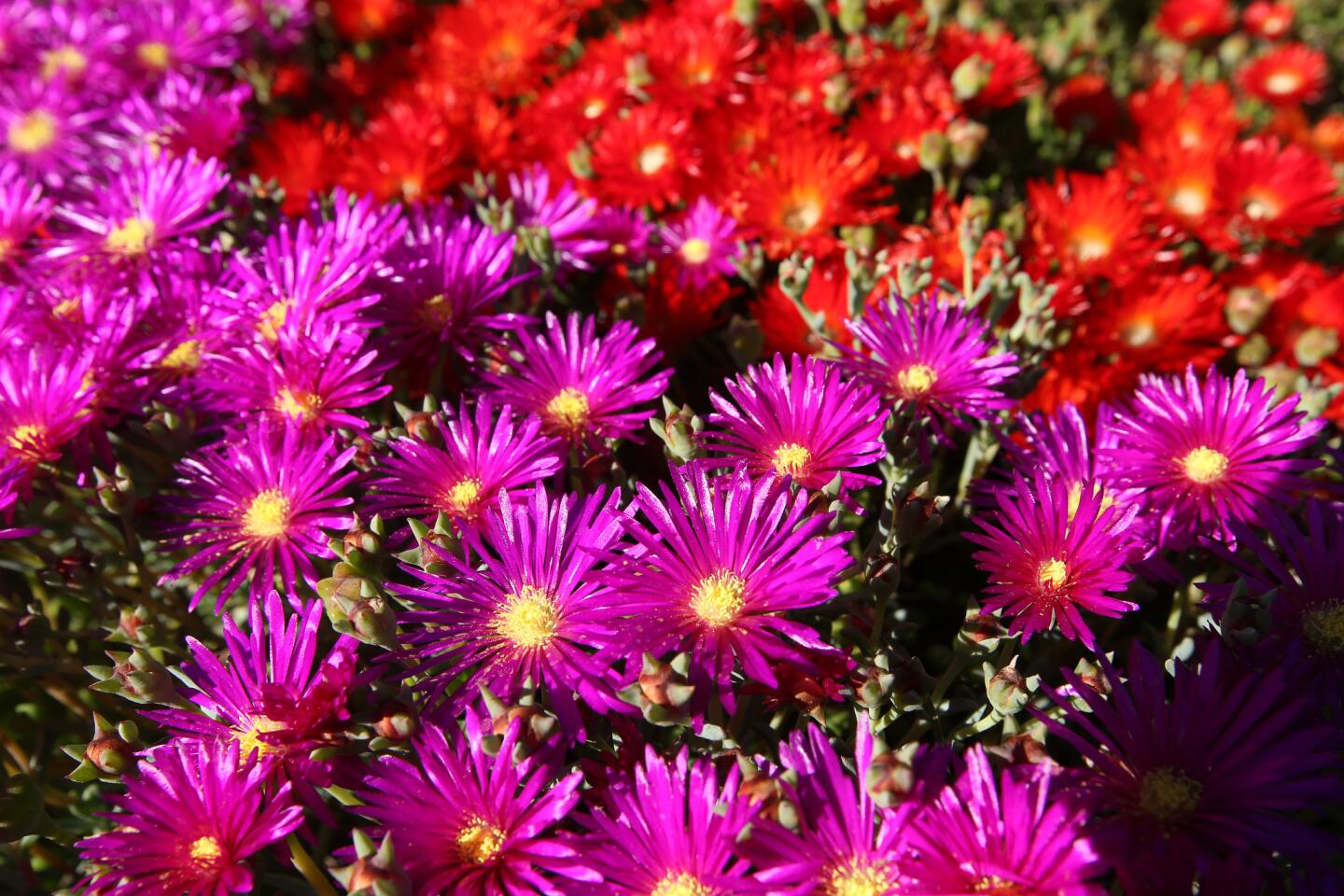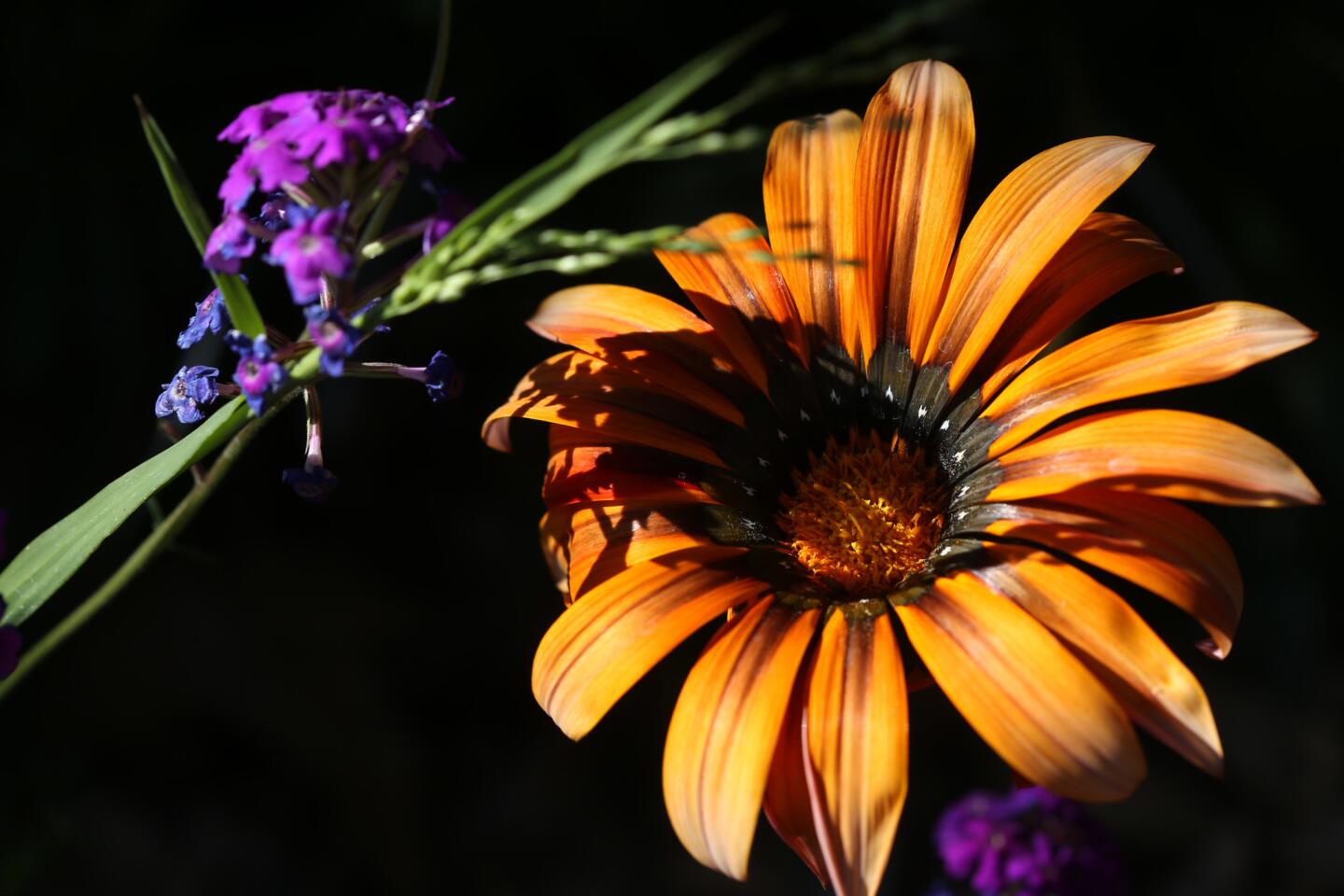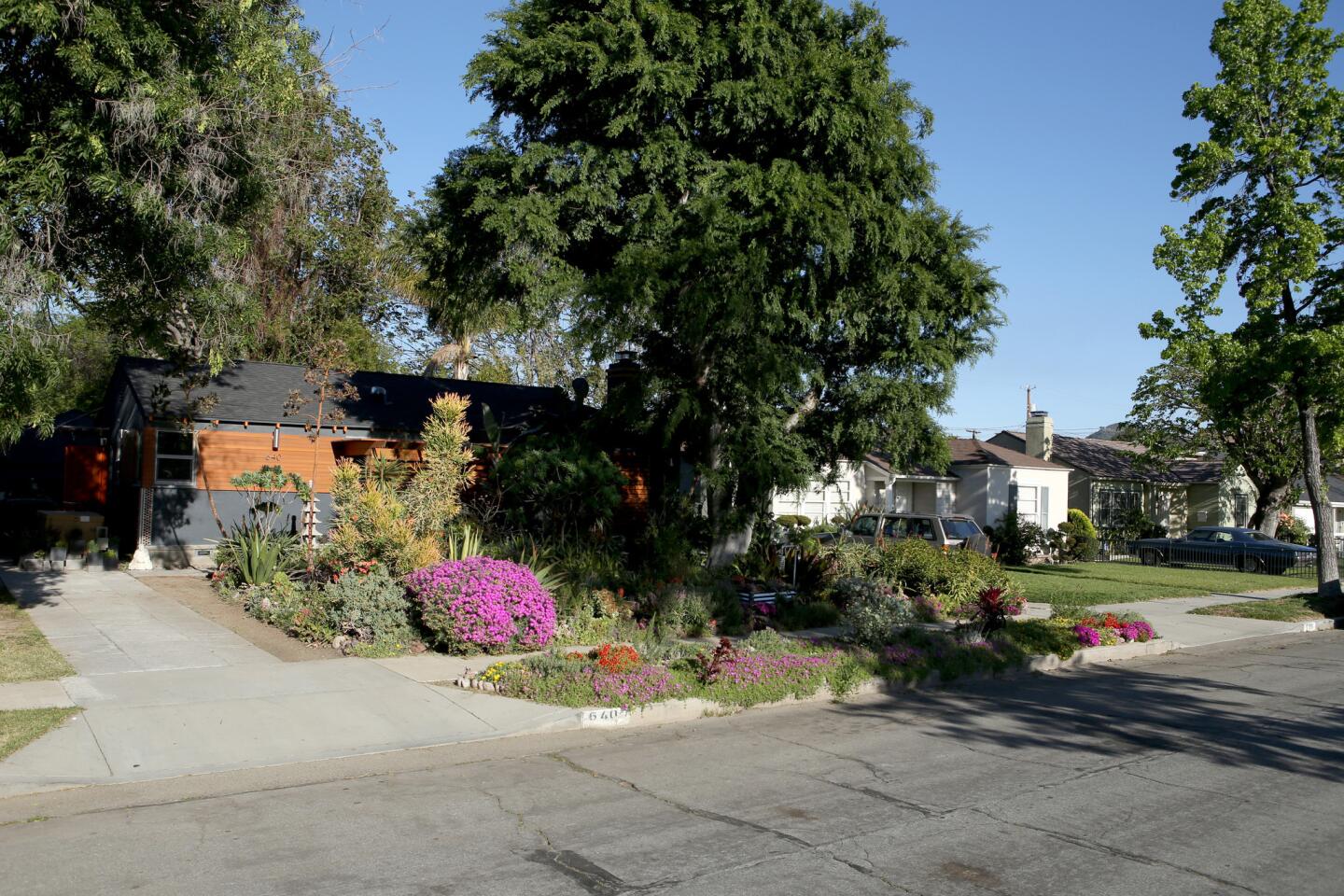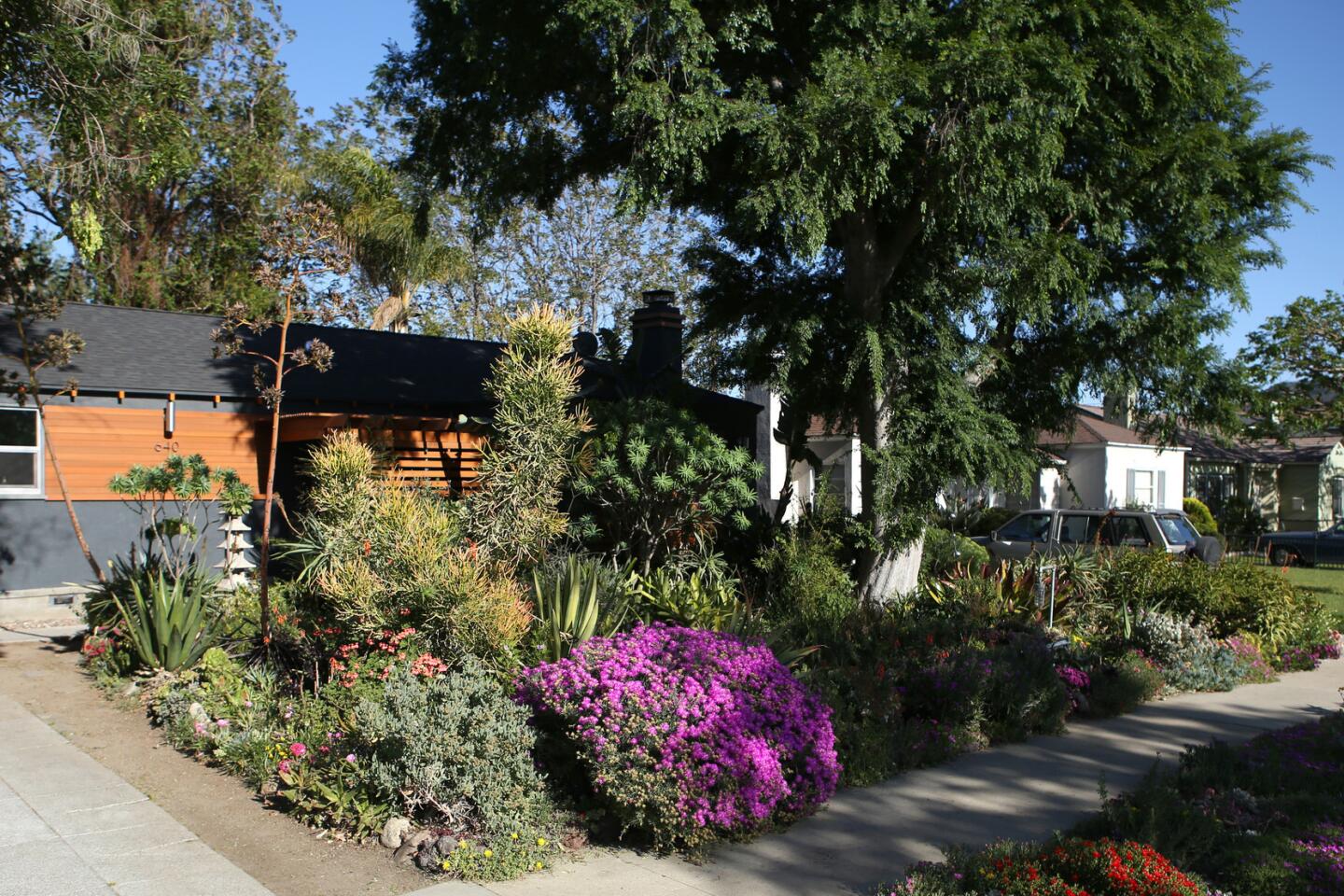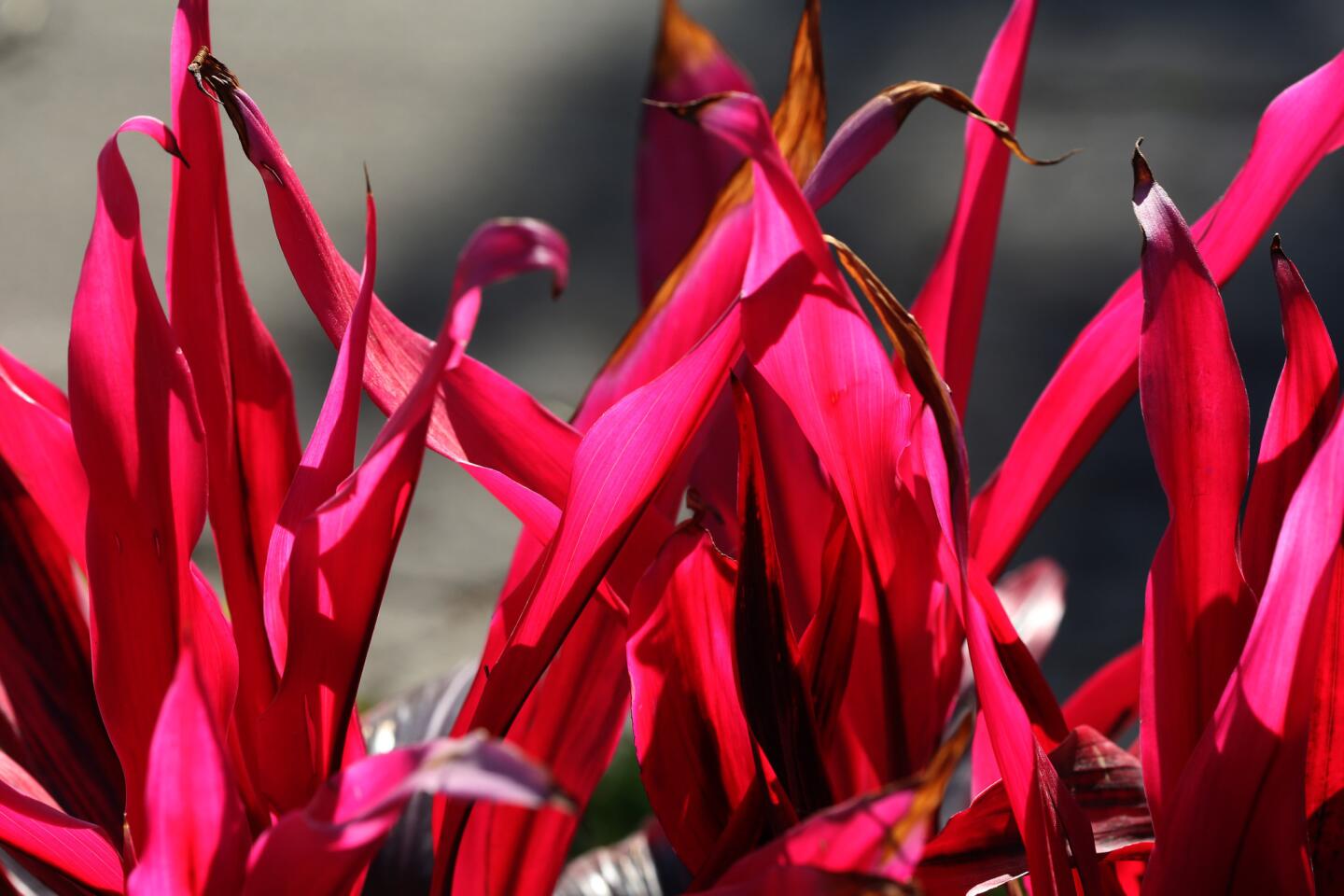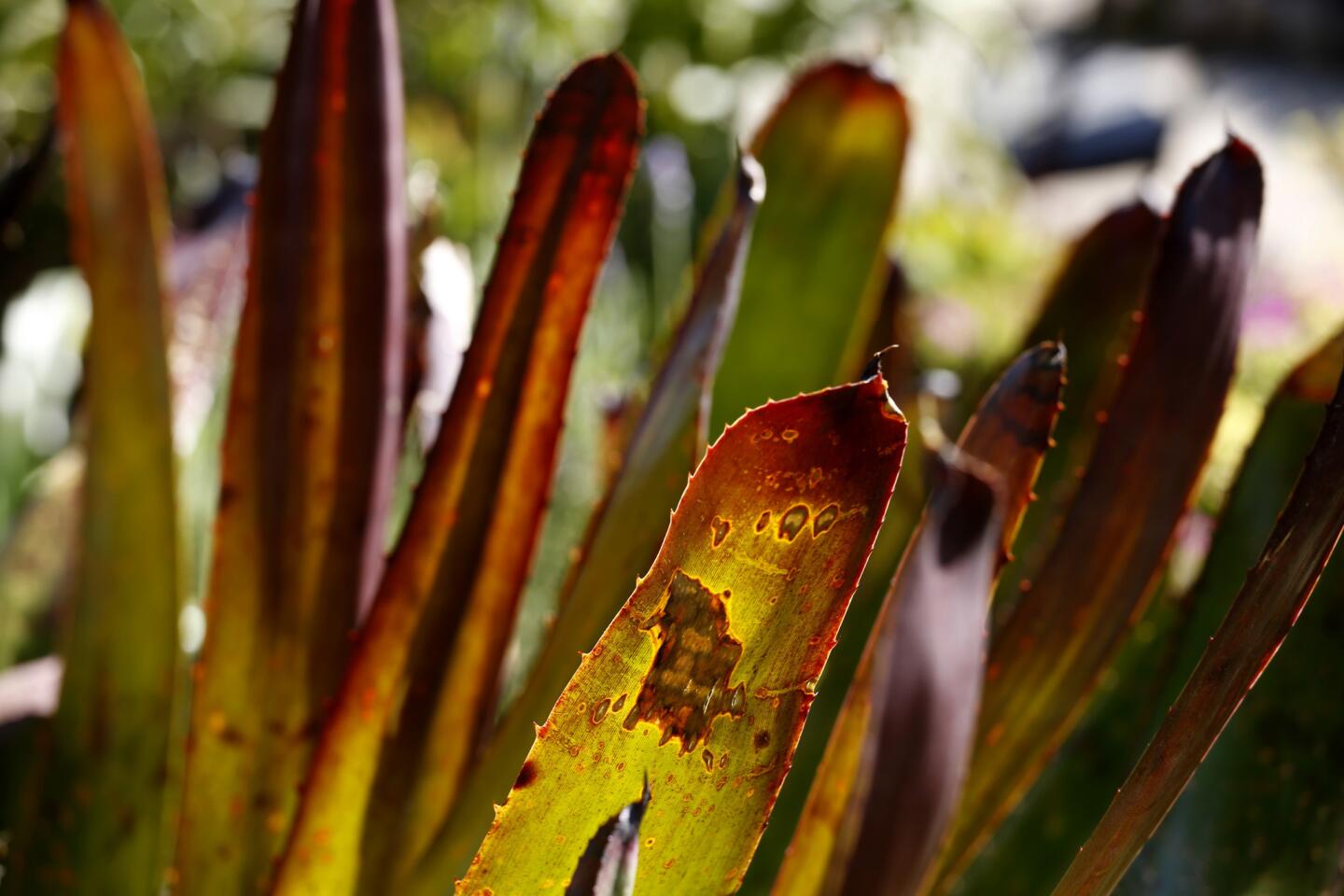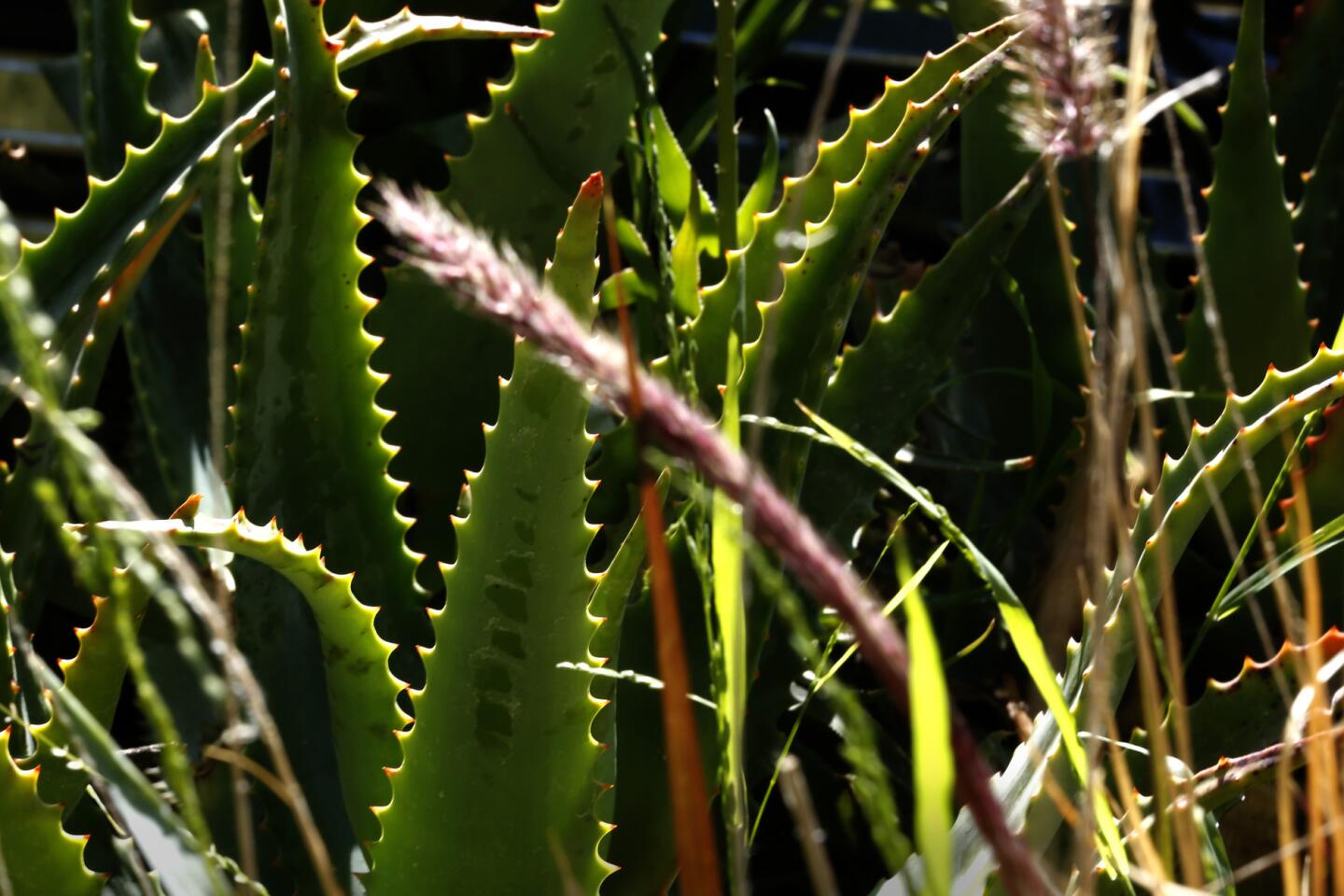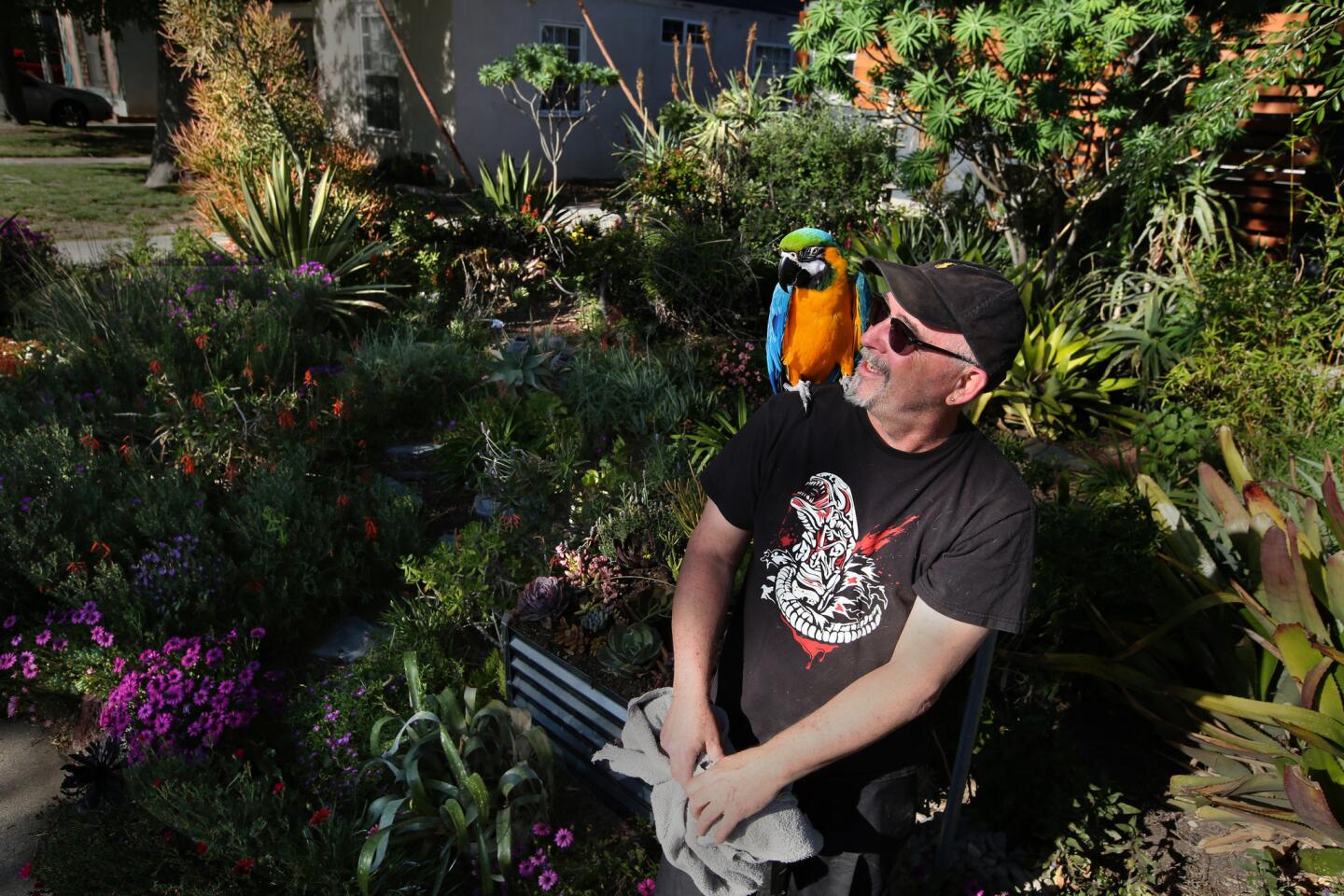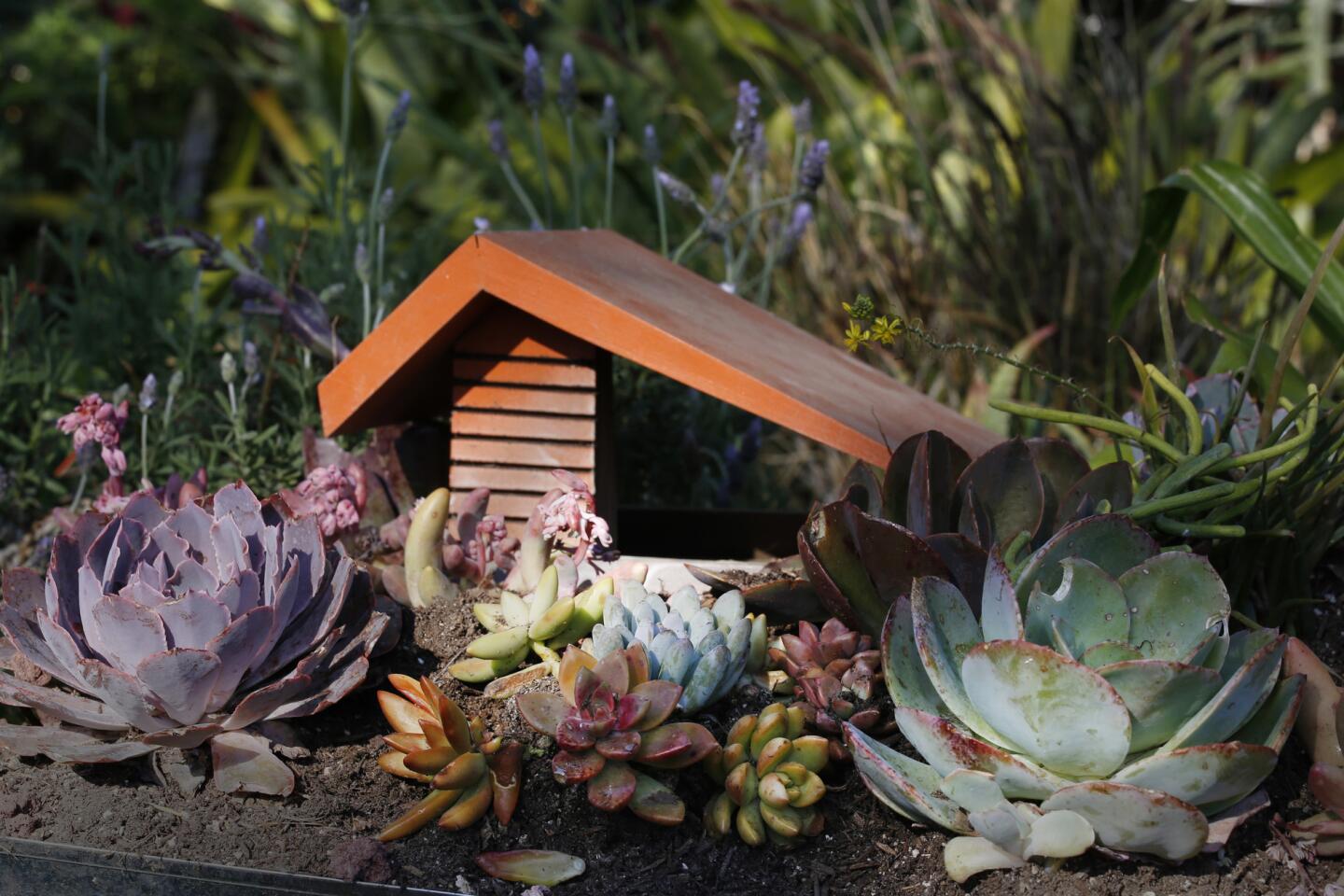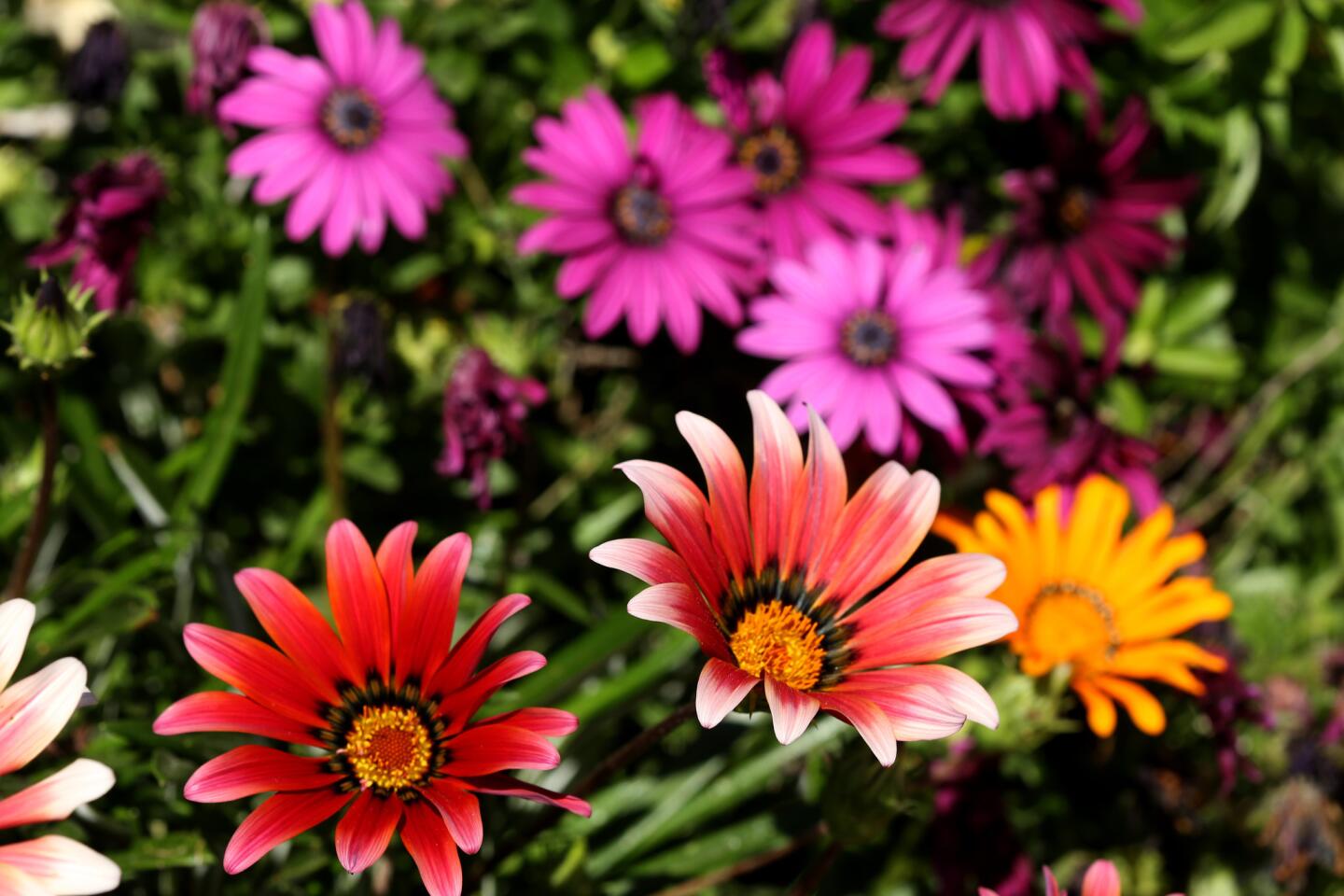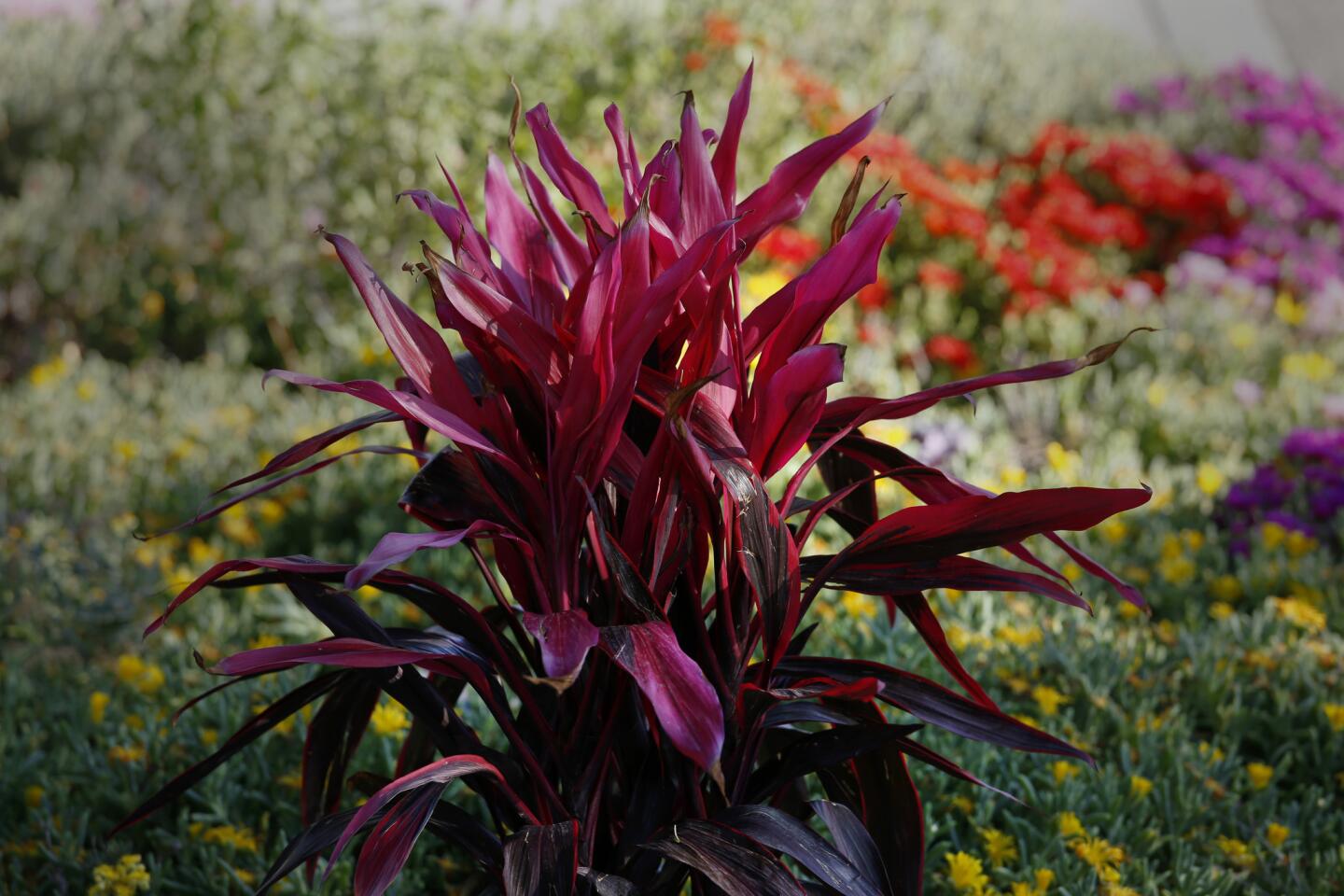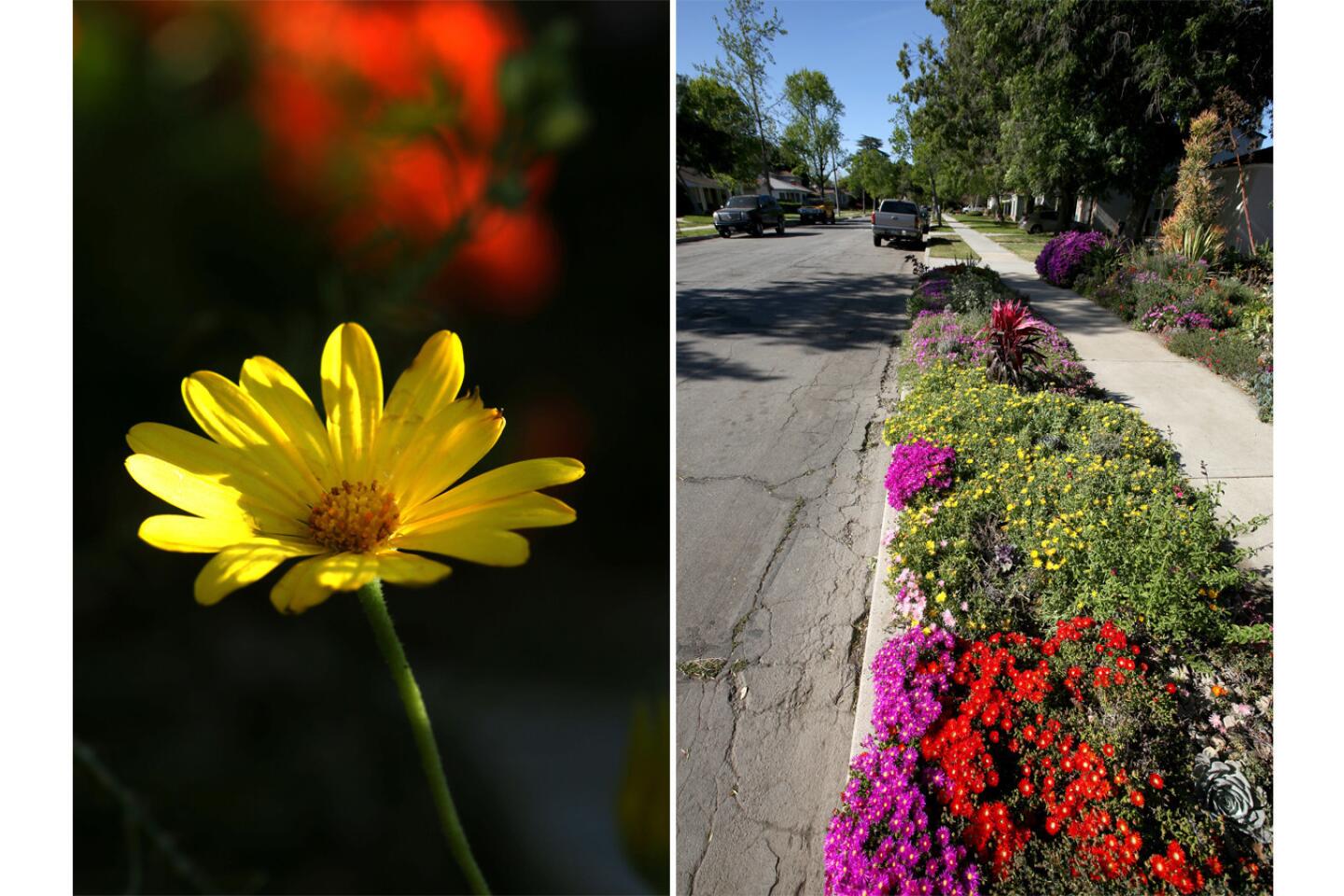This drought-friendly yard is a tropical oasis — in the middle of Burbank
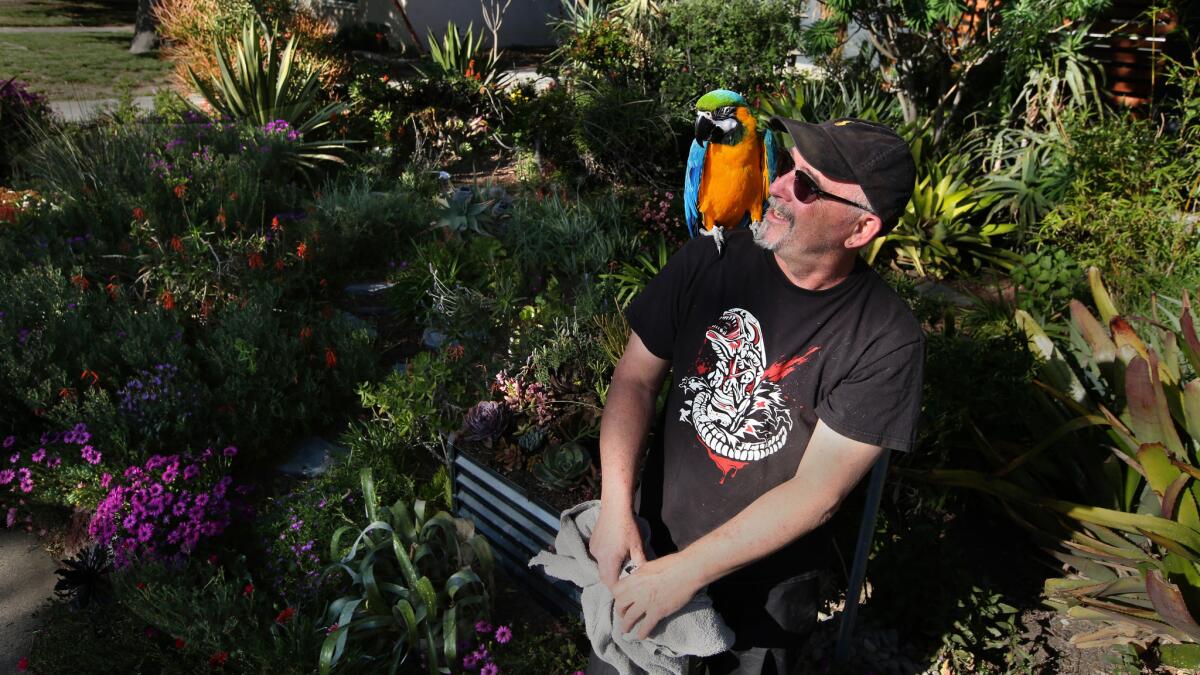
- Share via
Long before turf removal became a popular gardening practice in drought-stricken California, David Pixley removed his Burbank lawn and replaced it with low-water cacti, succulents and flowers.
Like a painter with a canvas, Pixley planted an unconventional mix of things, choosing exotic plants that he finds on his travels and rare drought-resistant plants purchased at the annual Huntington Botanical Garden plant sales.
His exotic frontyard and parking strip stand out in his bucolic Burbank neighborhood where most of the homes are fronted by compact green — and brown — lawns.
In Pixley’s yard, Euphorbia tirucalli (“Sticks on Fire”) shoots up to the sky, bright purple Lampranthus spectabilis (trailing iceplant) spills out on to the sidewalk and colorful African daisies scatter the landscape.
The free-for-all plant palette includes unusual cacti and succulents, blooming aloes, tropical cordyline and South American flowering bromeliads.
“I think education is the most important thing right now,” said Pixley, who waters his garden with buckets of water collected from his shower. “We need to teach our kids what to plant. This drought isn’t going away.”
A big fan of color, Pixley is constantly adding and editing the jungle-like landscape, experimenting with California native plants, dramatic agave, humming bird attracting salvias and South African gazanias.
“I plant contrasting plants that have bold colors and textures,” said Pixley, who worked as a gardener at the Huntington for several years. “This gives the garden a flow that draws the eye to each distinct section of the yard.”
Neighbors who encounter Pixley in his garden on a nightly basis may find him with his multicolored macaw, Casper, on his shoulder. They will also be invited to take a cutting home from his densely populated soil.
For some, Pixley’s always-evolving garden is a delightful change from the traditional suburban landscape.
“I love the way there is always something new in bloom regardless of the season,” says neighbor Kirsti Ronback. “His garden is a little tropical oasis in the middle of the Magnolia Park flatlands.”
For homeowners considering turf removal, Lucinda McDade, executive director of Rancho Santa Ana Botanic Garden in Claremont, notes that now is the best time to kill your lawn.
“I advise people to spend the summer killing their lawn while they dream about what they want their landscape to look like and then fact-find to figure out how to get there,” McDade said in an email.
“As you drive around, identify landscapes (and individual plants) that you really like. Likewise in your neighborhood, parks, gardens, and online, learn what you like (and equally important do not like) and find out what it is. The basic advice is to kill your lawn NOW and plan to plant no sooner than October.”
Pixley’s top 10 picks for plants in his zone that do well with little or no water:
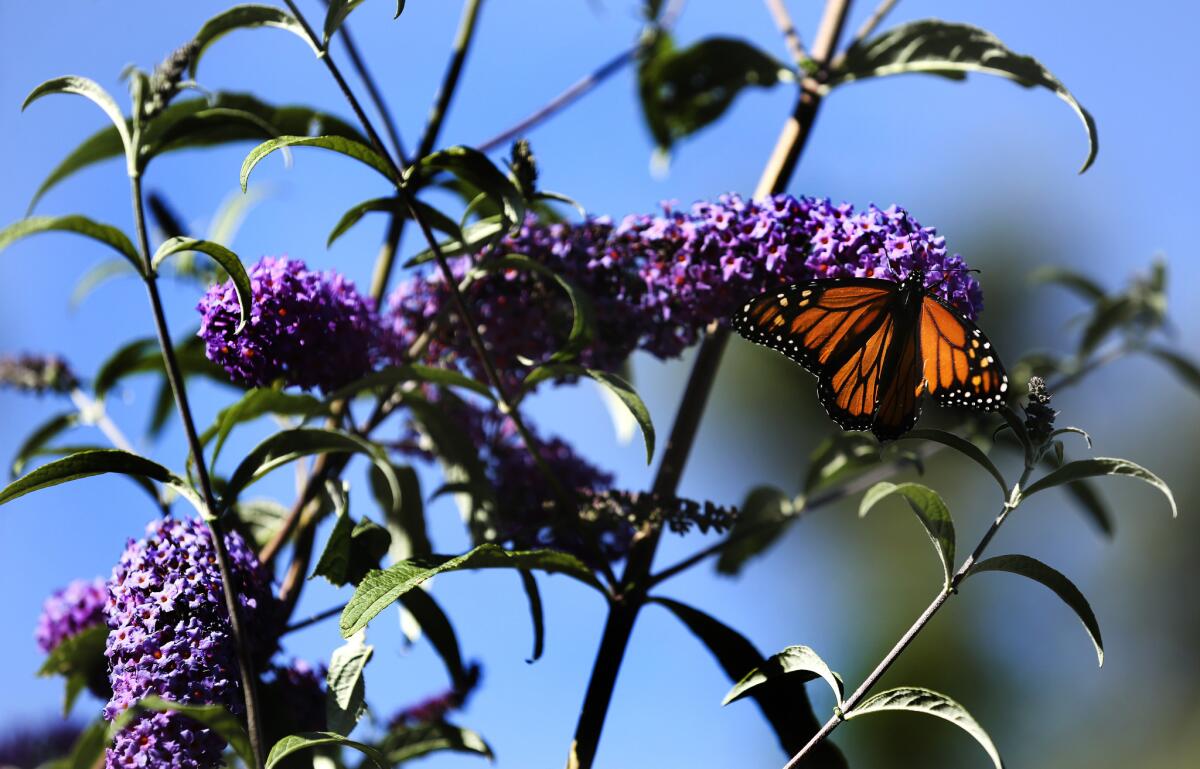
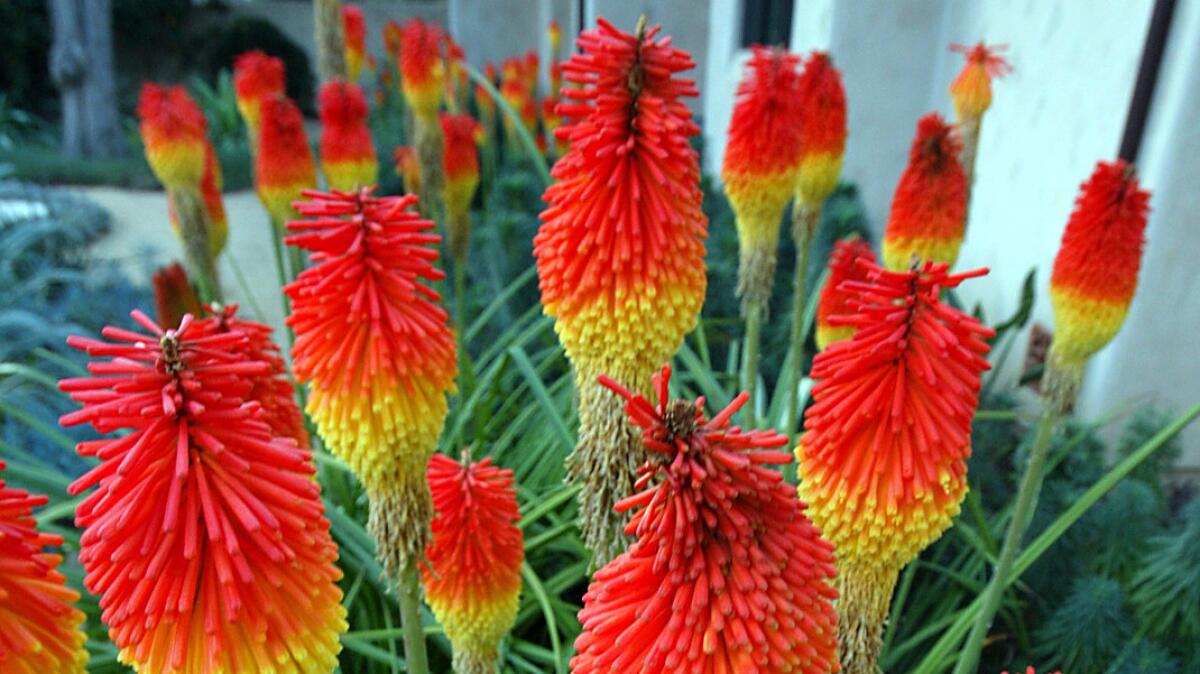
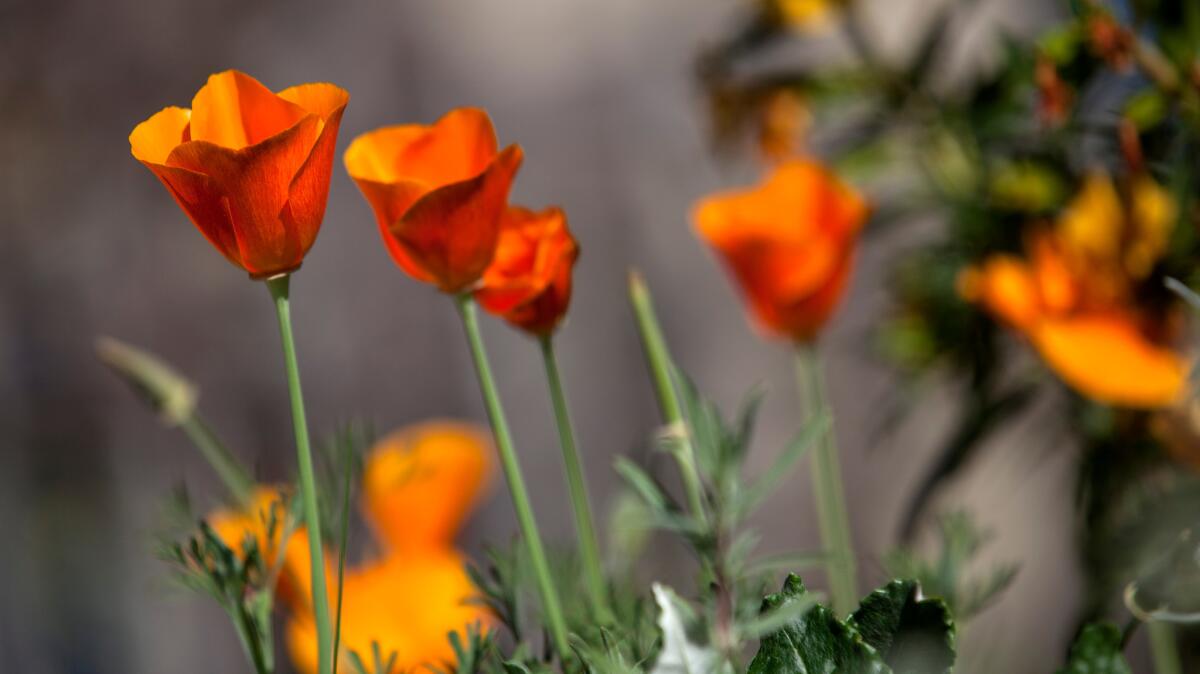
Pink Muhly Grass
Butterfly Bush
California poppy
Red Hot Poker
Hummingbird sage
Salvias
Sedum
Sempervivum (Hens and Chicks)
Succulents
Euphorbia
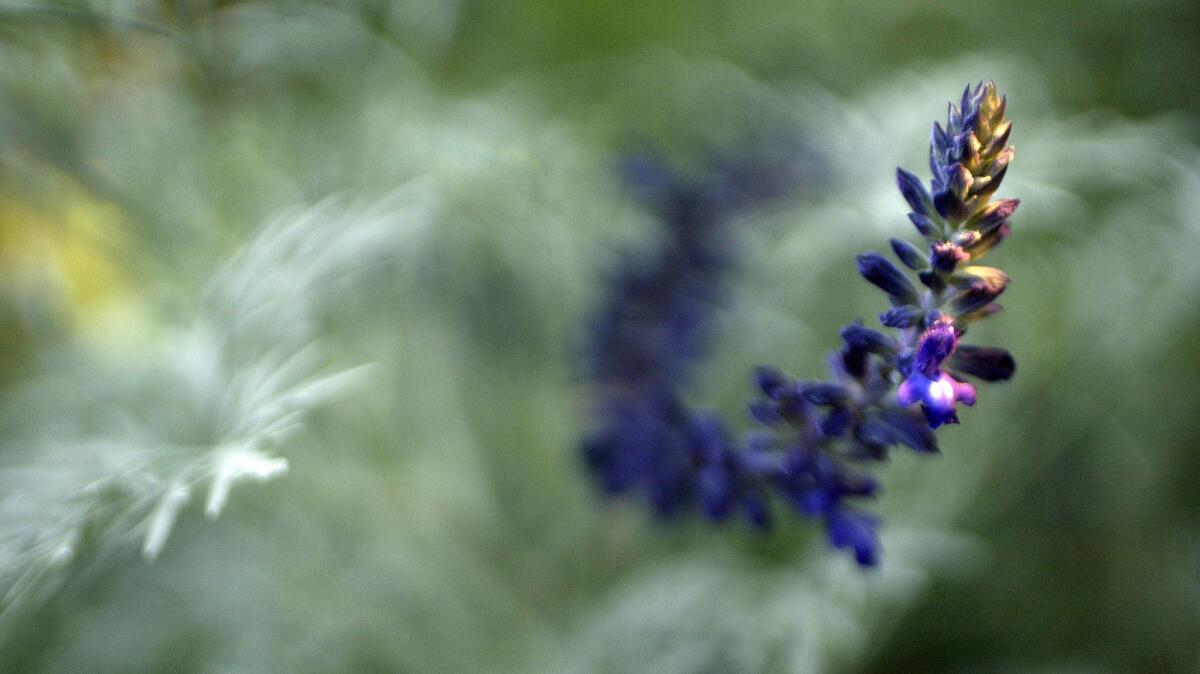
Follow @lisaboone19 for design news
ALSO:
Before and after: A Tustin garden goes from thirsty lawn to drought-tolerant oasis
Inspiration – and tips -- for drought gardening
Photos: 11 Inspiring water-wise landscapes
How one L.A. couple ripped out the grass -- and created a drought-tolerant dreamscape
